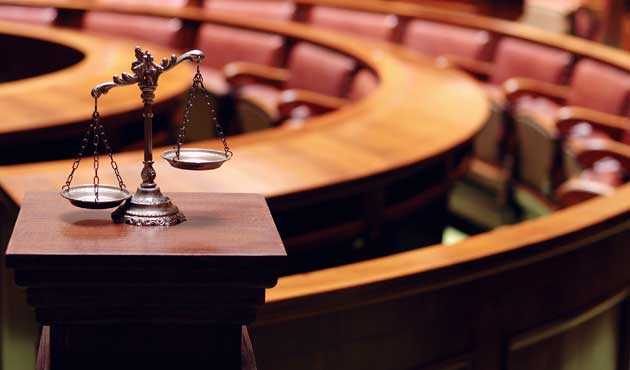The Statute of Limitations in Historical Abuse Claims Explained
Limitation periods are one of the first factors that should be considered when advising a victim of historical abuse on the merits of a successful claim against the alleged wrongdoers. Historical abuse claims are often not pursued until many years after the abuse was perpetrated. This can be for a variety of reasons including fear, shame or lack of mental capacity.
In recent years historical and sexual abuse scandals have been exposed and this has encouraged more victims to come forward seeking accountability against their abusers or the institutions that facilitated the abuse.
It is vital that potential claimants are aware of the technical hurdles that may arise when pursuing a case which is, on the face of it, statute barred.
The Statute of Limitations
The Statute of Limitations in historical abuse claims runs from either:
The date when the abuse occurred;
The date when the claimant turns 18;
The date when the claimant became aware of the abuse (the date of knowledge).
In Northern Ireland the limitation period elapses after 3 years. If a proposed claimant dies before the expiration of this period the limitation period will be either three years from the date of death or three years from the date of knowledge (if later) of the deceased’s personal representative. The Statute of Limitations does not run against an individual who is under a disability.
In the Republic of Ireland the limitation period elapses after 2 years where the cause of action relates to negligence or breach of statutory duty. Where the cause of action relates purely to an assault then the limitation period runs for 6 years.
The vast majority of historical abuse claims are taken against institutions or organisations where the alleged perpetrator was an employee or representative of that organisation. In these cases it will be alleged that the organisation was vicariously liable for the perpetrators actions and have therefore acted negligently.
Court’s Power to Override Time Limits
The Court’s in Northern Ireland have a discretionary power to override certain time limits. This issue of limitation will usually be raised by a defendant’s solicitor in their Defence to the claim and this will often result in the defendants’ solicitors bringing an application to strike out the claim.
In considering whether or not to override time limits the Court must adopt an overall assessment of the evidence available, which includes weighing up the impact of any adverse findings made against the claimant and the affects of any delay on the cogency of the evidence.
Under The Limitation (NI) Order 1989 the Court must have regard to all the circumstances of a case but in particular must consider:
The length of, and the reasons for, the delay on the part of the plaintiff;
The extent to which, having regard to the delay, the evidence adduced by the Plaintiff or Defendant is likely to be less cogent than if it had been brought within the time frame allowed;
The conduct of the defendant after the cause of action arose, including the extent if any to which they responded to requests reasonably made by the plaintiff for information or inspection for the purpose of ascertaining facts which were or might be relevant to the plaintiff’s cause of action against the defendant;
The duration of any disability of the plaintiff arising after the date of the cause of action;
The extent to which the plaintiff acted promptly and reasonably once he knew whether or not the act or omission of the defendant, to which the injury was attributable, might be capable at that time of giving rise to an action for damages;
the steps, if any, taken by the plaintiff to obtain medical, legal or other expert advice and the nature of any such advice he may have received.
Having considered each of these points the Court will make a decision on whether or not to override the time limits. There is no requirement to provide evidence of psychological injury to the Court, although this may be helpful in support of an argument that a Claimant was unable to pursue a case due to medical issues.
The approach in the Republic of Ireland is more restrictive in that it is necessary under the Statute of Limitation Act 1957 to prove that a Claimant was suffering from a recognised psychological injury which substantially impaired their will, or ability to make a reasoned decision to being an action.
The Defendants solicitors will generally raise limitation as an issue in their Defence to the action and may seek to have the case discontinued or struck out. The Judge will consider the available evidence and will have particular regard to whether the hardship suffered by a Claimant would outweigh any potential hardship suffered by the Defendants if the action did not proceed.
How to Prepare for a Defence of Limitation
It is important that potential Claimants are fully aware of the risks when entering into litigation. For example, if a case is struck out following an application by the Defendant that a case is statute barred the Court can order that the Claimant pay the Defendants legal costs incurred to that date.
In order to avoid adverse costs Orders and give your case the best chance of success the best approach is to gather a range of corroborative evidence which can include:
Witness statements;
Documentary evidence of the defendant’s character, this can include details of any criminal convictions or disciplinary action taken against the defendant;
Medical records detailing impact of abuse;
Expert medical reports regarding the impact of the abuse on the Claimant and the extent to which psychological injuries have impaired the Claimants ability to pursue an action.
The Court will be much more likely to override time limits in an historical abuse case if there is a good reason provided for the delay in taking forward a case which is supported by documentary evidence.

